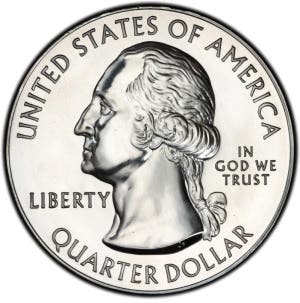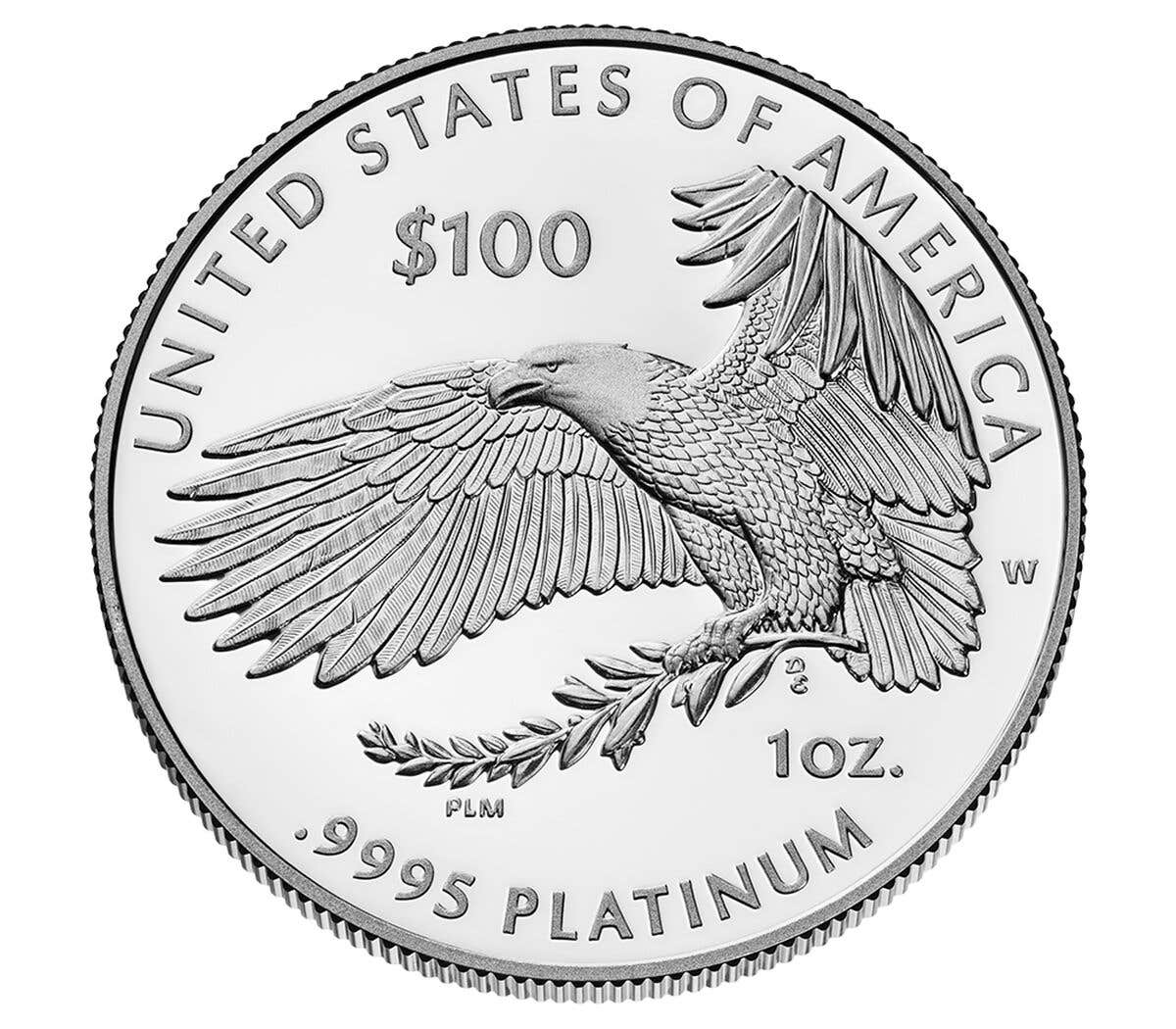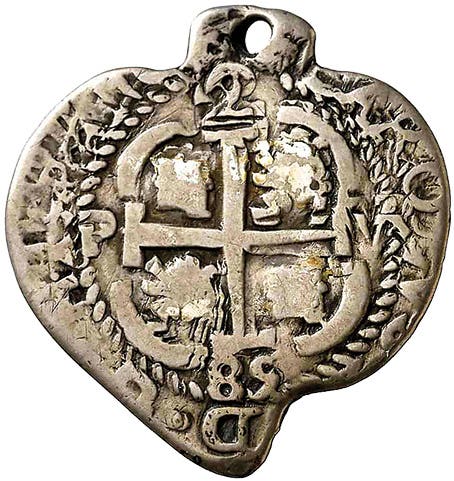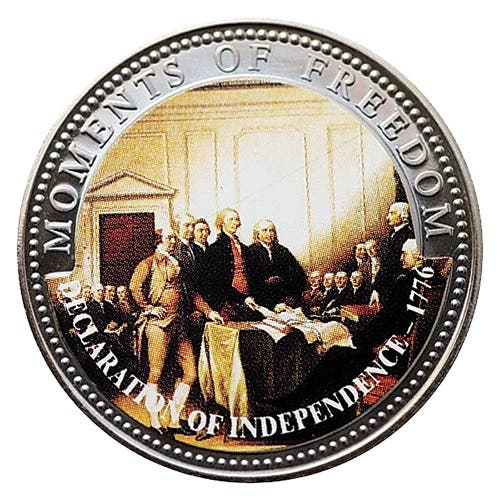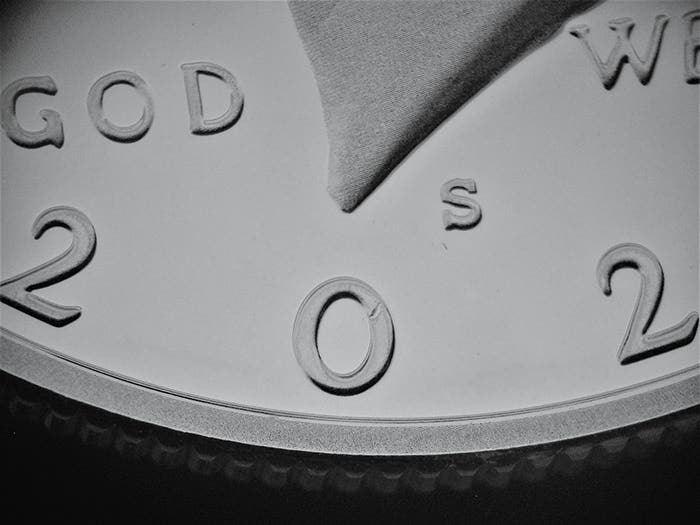Don
In response to several letters I’ve seen in Numismatic News concerning the legacy of Franklin Delano Roosevelt, I wish to submit the following response.
This article was originally printed in the latest issue of Numismatic News.
>> Subscribe today!
In response to several letters I’ve seen in Numismatic News concerning the legacy of Franklin Delano Roosevelt, I wish to submit the following response.
Where FDR is concerned, recent NN letters make clear that he remains a controversial figure in American history. But the three letters I’ve seen disparaging his legacy speak more to the political sentiments of the authors than they do to the historical record. One writer seems even unaware of his own logic, to the detriment of his conclusion.
Fred Perrine writes:
“History has shown that Roosevelt knew the Japanese were going to attack Pearl Harbor and that would give him the authority to ask for a declaration of war. America would only support another foreign war if we were attacked.”
He then follows up one paragraph later with, “World War II ended the Great Depression, not Roosevelt.”
If Mr. Perrine’s first three premises are each true, i.e. 1) Roosevelt knew Japan would attack Pearl Harbor in advance; 2) America would only enter the war if attacked; and 3) World War II ended the Great Depression, then it must logically follow that Mr. Perrine’s conclusion (Roosevelt did not end the Great Depression), is false.
Based on Perrine’s first three premises, Roosevelt single-handedly secured America’s entry into a World War that ended the Depression; ergo, Roosevelt ended the Great Depression. I’m not trying to be partisan, but Mr. Perrine set up a perfect logical syllogism and then found the wrong conclusion.
William Chomko also contributed to this debate. He believes that FDR’s policies nearly destroyed the United States. A month or so ago, another NN writer, R Moore, expressed a similar sentiment. Yet I’m not sure what was destroyed. I honestly have no idea.
I do know that if FDR was trying to destroy the United States, then he did just about the worst job of destroying the United States that it’s possible to do. He destroyed us so bad, in fact, that we were able to emerge victorious from the largest war in human history.
Industrial coordination among government, business, and the military during World War II certainly was not a literal free market, but it clearly allowed the U.S. to manufacture, in just one category, more than 100,000 fighters and bombers in less than five years. Apparently, FDR nearly destroyed our country, but somehow he failed to destroy America’s immense industrial capacity. Moreover, businessmen were entitled to keep their after-tax profits on all those war supplies. Evidently, FDR tried to destroy America, but somehow forgot to destroy capitalism.
Indeed, FDR destroyed America so much that in 1946, the U.S. was single-handedly responsible for 90 percent of the world’s Gross Domestic Product. In other words, 9 out of every 10 dollars of goods produced worldwide were produced in America. For the next 20 years, America experienced tremendous economic expansion and wealth creation. At this point, I really just have to ask:
how did FDR nearly destroy America? Specifically, I’d like to know how a handful of moderate socialist policies like Social Security and Worker’s Compensation did anything to destroy America? If, on the other hand, Chomko is simply trying to blame all the problems of today (unemployment, weak dollar, budget deficits) on a president who died 65 years ago, he surely has his work cut out for him.
FDR can be pretty easily criticized from just about any point on the political spectrum. By all means, pick your issue and pick your flavor of politics. But any statement to the effect that FDR “nearly destroyed the United States” is just palpably absurd. The statement certainly reflects the author’s sentiment. It does not at all seem to reflect the historical record.
If you ask me, there’s only one President in our entire history who comes close to having nearly destroyed the United States. It’s James Buchanan, and I give the prize to him because of his failure to do anything effective to stop the Civil War.
Chomko would also have us believe that “most modern professional economists and historians” agree that FDR extended the Depression “for a decade.” Chomko is really referring to economists who practice either the Chicago or Austrian school of economics. As to historians who might agree with Chomko, I suspect that they can be found inside the Heritage Foundation, the Cato Institute or some other conservative think-tank.
My own assessment is that the policies of FDR’s “first 100 days” and beyond did improve the economy from 1933-1936 (which is why he won reelection in 1936 with more than 60 percent of the popular vote and 523 electoral votes). 1937-1939 were bad years, but by 1940 we were selling arms to the Allies and reducing unemployment once again. Without World War II, it’s difficult to say that any president, Democrat or Republican, could have revitalized the economy, especially when you consider that international trade had fallen off a cliff around 1930 and would not really make a comeback until the 1950s. Nevertheless, the FDR critics will heap all the blame on him for the 1937-1939 recession while at the same time give the man no credit for leading us in World War II, let alone for getting America’s banks in order.
I personally don’t approve of Roosevelt’s court-packing scheme. My grandfather switched parties and became a Republican because he was so disgusted by that plan. Seventy-five years later, FDR’s scheme still looks blatantly unconstitutional. But people forget context. There’s a reason that four justices of that Supreme Court were given the epithet “Four Horsemen of the Apocalypse.” They weren’t bad men, but their minds were so thoroughly grounded in the 19th century that they considered it unconstitutional for the Federal government to ban even child labor.
Would any modern American care to step up to the plate and defend the Tenth Amendment “right” of a state to allow unregulated child labor? Even in the nostalgic Tea Party, this would be a tough sell.
The fact remains that the court wasn’t packed. FDR’s scheme may well have just been a bluff to scare some of “the Four” into retirement. If it was a bluff, it paid off; all four of the justices subsequently retired.
I’ll tell you what I’ve heard. I’ve heard Republicans pine for the “golden” 1950s. I’ve heard Democrats reminisce about the “radical” 1960s. No one has tried to convince me that the “best of times” were before 1933.
Except coin collectors, who just really, really wish we still had a bimetallic currency like in the “good old days.” I know the feeling well.
This Viewpoint was written by a hobbyist Leonard T. Offutt. Viewpoint is a forum for the expression of opinion on a variety of numismatic subjects. The opinions expressed here are not necessarily those of Numismatic News. To have your opinion considered for Viewpoint, write to David C. Harper, Editor, Numismatic News, 700 E. State St., Iola, WI 54990. Send e-mail to david.harper@fwmedia.com.
More Coin Collecting Resources:
• Subscribe to our Coin Price Guide, buy Coin Books & Coin Folders and join the NumisMaster VIP Program





